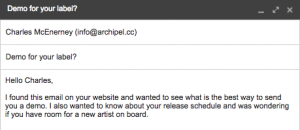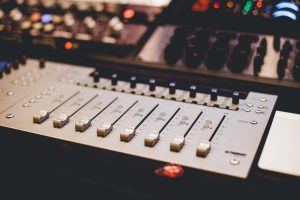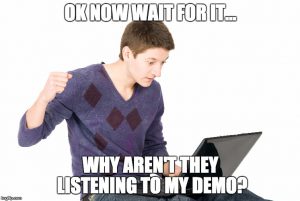How Will A Music Label Find Me?
This blog post will focus on one of the anxieties that every new music producer gets in this turbulent and busy world, which is: how to reach a music label aside from sending in demos.
Can your music make it to the ears of a label owner?
Following one of my most popular posts on how to send demos, this post will focus on the opposite approach, which is to slowly get labels to come to you instead of hunting them down. Call it reverse psychology if you want, but it could also be called the art of letting go. As Einstein said,
“Insanity: doing the same thing over and over again and expecting different results.”
To understand how a label works and to help you prepare your strategy, perhaps I can share my own experience first. Here are some pointers:
Being a label owner is a bit like being a talent scout in sports. You have a routine of listening to music from within your own circle and of checking your preferred sources like charts and podcasts, as well as finding music through friends of label artists. Then there are moments where you’re a bit freer or more curious, and you’ll dig through SoundCloud for a few hours. I found some pretty incredible artists on SoundCloud and I find that it’s easier than ever to find unknown artists — raw talent. But while it’s easier and more exciting than ever to find unsigned artists, it’s also overwhelming.
The label owner and yourself face the same issue: how can you connect to each other to form a perfect match?
Maybe you don’t realize this, but you might not yet know which label will be your main career companion. It’s a bit like finding true love; it’s out there, but it needs the right timing to happen.
As the label grows, the owner tends to want to sign friends of the label’s artists and artists related to those that have already been signed.
Why?
Mainly because, in my case, I want to deal with people I feel are great to work with. Also, because while the music label is defining its sound, I want to keep some sort of logical progression from release to release. I won’t sign in a rush, or sign a track that sounds crazy good without knowing who I will be dealing with. Difficult and finicky personas are my pet peeve, and I will try to stay far away from them.
Running multiple projects can become messy with difficult people.
Dealing with contracts and such is so annoying, and I’d  prefer doing it with someone who clicks with me. I trust my friends more than Facebook or a polite exchange over email.
prefer doing it with someone who clicks with me. I trust my friends more than Facebook or a polite exchange over email.
So what does that tell you? How do music labels get to you if they want to sign you?
Stop worrying about labels, and instead work on your network. Spend more time connecting with artists who inspire you. Befriend newer artists who also struggle. That struggling artist or that other dude you met can eventually be helpful at some point.
Some inspiration to meet people:
- Soundcloud: Follow artists that inspire you. Comment on their tracks and go listen to people who also love the tracks.
- Soundcloud groups: There are nice communities out there that you can join and where you can post your new ideas. Some music label owners are also there sometimes.
- Facebook groups: If you search a bit, you’ll find many groups you can join. People will discuss topics or share a new find. There’s always something to read.
- Google Hangouts: A bit like Facebook but one great feature is to have group video calls. Then you can talk all together. Quite fun.
The music label that needs to work with you will find you at the right moment, when they need to. It demands a certain faith in the process, but while waiting, go back to learning sound design and making new friends.





 Shaping the sound
Shaping the sound
 I hear these comments all the time from fellow producers or aspiring ones. Not being able to finish a song is a very common problem for all of us. The world goes by so quickly today, and being exposed to so much music on Soundcloud triggers our A.D.D. and stimulates the excitement to always want to do more. As an artist, you set expectations for your own work too high, which then leads to you getting overwhelmed and succumbing to procrastination.
I hear these comments all the time from fellow producers or aspiring ones. Not being able to finish a song is a very common problem for all of us. The world goes by so quickly today, and being exposed to so much music on Soundcloud triggers our A.D.D. and stimulates the excitement to always want to do more. As an artist, you set expectations for your own work too high, which then leads to you getting overwhelmed and succumbing to procrastination. That’s often the main obstacle here: asking for help.
That’s often the main obstacle here: asking for help.